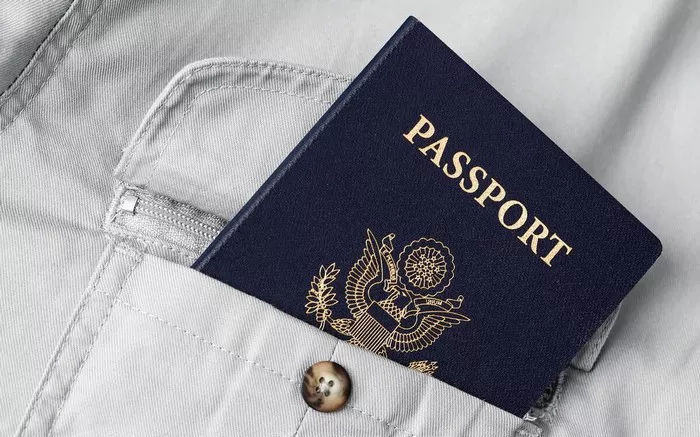For countless individuals around the globe, the allure of the United States is irresistible. Its diverse landscapes, vibrant cities, and rich cultural tapestry draw millions of tourists each year. Whether it’s exploring the bustling streets of New York City, basking in the natural wonders of Yellowstone National Park, or experiencing the glitz and glamour of Hollywood, the U.S. offers a plethora of experiences for visitors to enjoy.
However, amidst the excitement of planning a trip to the U.S., it’s essential for tourists to understand the intricacies of immigration laws and regulations, particularly regarding the duration of their stay. How long can a tourist legally remain in the U.S.? What factors influence the length of their stay, and what are the potential consequences of overstaying a visa? This comprehensive guide aims to answer these questions and provide clarity on the duration of stay for tourists in the United States.
Visitor Visa Categories
Tourists wishing to visit the United States typically enter under the B-1 or B-2 visa categories. The B-1 visa is intended for individuals traveling for business purposes, such as attending conferences, meetings, or negotiations. On the other hand, the B-2 visa is designated for tourists and individuals seeking medical treatment, visiting family or friends, or participating in social events.
Both the B-1 and B-2 visas allow for temporary stays in the U.S., with the duration determined by the immigration officer at the port of entry. Tourists are usually granted a period of admission ranging from a few weeks to six months. The specific length of stay is indicated on the Form I-94, Arrival/Departure Record, issued to the traveler upon entry into the United States.
Length of Stay and Extensions
The initial period of stay granted to tourists on a B-1 or B-2 visa is typically up to six months. However, the immigration officer has the discretion to authorize a shorter duration based on various factors, including the purpose of the visit, the traveler’s ties to their home country, and their ability to support themselves financially during their stay.
Tourists who wish to extend their stay beyond the initial period must apply for an extension with the United States Citizenship and Immigration Services (USCIS) before their authorized stay expires. The application process involves submitting Form I-539, Application to Extend/Change Nonimmigrant Status, along with supporting documents and the required fee.
It’s crucial for tourists to apply for an extension before their authorized stay expires to maintain lawful status in the U.S. Failure to do so could result in accruing unlawful presence, which may have severe consequences, including being barred from reentering the country.
Overstaying a Visa
Overstaying a visa is a serious violation of U.S. immigration laws and can lead to significant repercussions. When a tourist remains in the United States beyond the expiration date of their authorized stay, they are considered to be unlawfully present.
The consequences of overstaying a visa can vary depending on the duration of unlawful presence accrued by the individual:
Less than 180 Days: Individuals who overstay their visa for less than 180 days but depart the United States voluntarily are generally not subject to any formal penalties. However, they may be barred from reentering the U.S. for a certain period, typically three years.
More than 180 Days: Those who overstay their visa for more than 180 days but less than one year and then depart voluntarily may face a three-year bar from reentering the U.S. If the overstay exceeds one year, the bar increases to ten years.
Removal Proceedings: In some cases, individuals who overstay their visa may be placed in removal proceedings, also known as deportation. This typically occurs if the individual is apprehended by immigration authorities or encounters legal issues while in the U.S.
It’s essential for tourists to be mindful of their authorized stay and adhere to the terms of their visa to avoid any legal consequences. Seeking timely extensions, if necessary, and complying with immigration laws are critical aspects of ensuring a smooth and enjoyable visit to the United States.
Factors Influencing Duration of Stay
Several factors can influence the duration of stay granted to tourists upon entry into the United States:
Purpose of Visit: The primary reason for the visit, whether it’s tourism, business, medical treatment, or visiting family, plays a significant role in determining the length of stay.
Ties to Home Country: Immigration officers assess the ties an individual has to their home country, including family, employment, property, and financial assets, to determine the likelihood of the individual returning home after their visit.
Financial Resources: Tourists are expected to have sufficient financial resources to support themselves during their stay in the U.S. Immigration officers may inquire about the traveler’s financial situation to ensure they can cover their expenses without resorting to unauthorized employment.
Previous Compliance: Individuals with a history of compliance with U.S. immigration laws, including timely departures from previous visits, may be granted longer periods of stay compared to those with a record of overstays or violations.
Conclusion
The United States offers a wealth of opportunities for tourists to explore and experience its diverse offerings. However, it’s essential for visitors to understand the regulations governing the duration of their stay and comply with immigration laws to avoid any legal issues.
Tourists entering the U.S. on a B-1 or B-2 visa are typically granted an initial period of stay of up to six months, with the possibility of extension if needed. Overstaying a visa can have serious consequences, including bars from reentry and potential deportation, making it imperative for travelers to adhere to their authorized stay and seek extensions when necessary.
By understanding the factors that influence the duration of stay and staying informed about immigration regulations, tourists can ensure a smooth and enjoyable visit to the United States, creating lasting memories while complying with the law.


